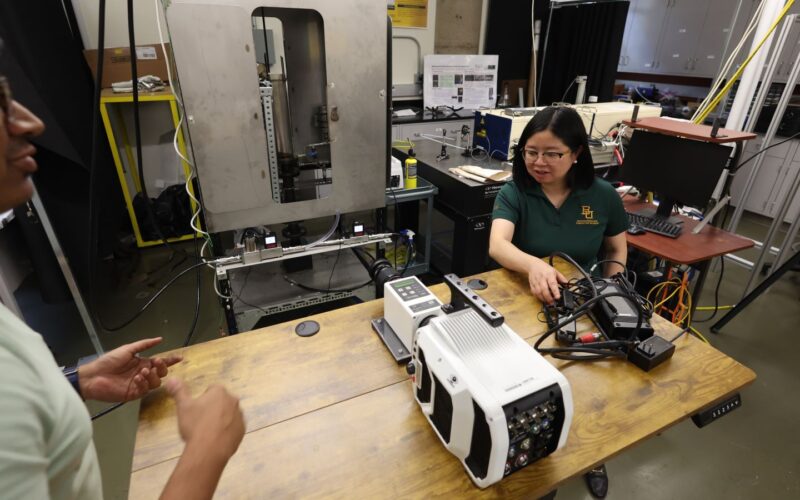Texas-based Baylor University researchers from the Cornerstone Atomization and Combustion Lab (CAC) have introduced a method for efficiently combusting biofuels, specifically glycerol/methanol blends, using a Swirl Burst (SB) injector. This new technology enables the ultra-clean combustion of viscous biofuels, which are typically difficult to burn, with near-zero emissions. The findings were published in the journal ‘Fuel’, marking a significant advancement for sustainable energy solutions.
The research demonstrates how the Baylor combustion technology can transform bio-waste into clean energy, according to lead author Lulin Jiang, Ph.D., principal investigator of the CAC Lab and assistant professor of mechanical engineering at Baylor’s School of Engineering and Computer Science.
Glycerol, a byproduct of biodiesel production, is challenging to burn due to its high viscosity. Conventional injectors struggle with it, but the SB injector overcomes this hurdle, eliminating the need for costly fuel preheating or processing. By producing fine fuel droplets, the SB injector achieves a clean burn, significantly reducing emissions of harmful pollutants such as carbon monoxide (CO) and nitrogen oxides (NOx).
Jiang explained that the SB injector allows biodiesel producers to convert glycerol waste into a valuable fuel source, supporting a circular economy and reducing the carbon footprint. Its flexibility to burn various glycerol/methanol ratios without modifications makes it suitable for power plants aiming to meet stringent emissions standards.
The research team tested three glycerol/methanol fuel blends – 50/50, 60/40, and 70/30 ratios – at different air-to-liquid mass ratios, achieving over 90% combustion efficiency. The 50/50 blend demonstrated complete combustion with near-zero emissions, a remarkable improvement over conventional injectors, which often produce high emissions when handling high-viscosity fuels.
“The demonstrated high viscosity tolerance and fuel flexibility of the technology signifies that not only waste glycerol, but also the viscous source oils of biodiesel, and other waste-based bio-oils can be directly utilised for energy generation without further processing, significantly reducing biofuel cost and thus potentially stimulating its broad application,” Jiang said.
The breakthrough could help reduce the biodiesel industry’s environmental impact and improve cost-effectiveness.
Jiang and her team are part of the National Science Foundation’s (NSF) National Innovation Corps (I-Corps) programme, which supports the commercialisation of groundbreaking research. Additionally, Baylor and the City of Waco are collaborating on the NSF Civic Innovation Challenge, aiming to develop climate-smart waste energy solutions at the Waco Landfill. This project has received a $1 million pilot grant to further reduce methane and air pollutants, transforming waste into clean energy.
The research was funded by Baylor University’s Startup fund, along with NSF CIVIC awards co-funded by the U.S. National Science Foundation and the Department of Energy.




















